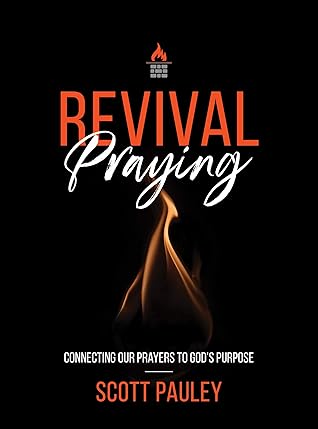More on this book
Kindle Notes & Highlights
by
Scott Pauley
Read between
June 8 - June 12, 2020
There is nothing wrong in our lost world that the gospel of Jesus Christ could not make right, and there is nothing missing in local churches that revival would not supply.
Our greatest need is not better preaching, but better praying. The secret to revival is what happens in the prayer closet, not on the platform.
Paul wrote, “Where sin abounded, grace did much more abound” (Romans 5:20). And, our Lord Jesus Christ declared, “With God all things are possible” (Matthew 19:26). God does His most wonderful work in the worst of situations.
The discipline of getting alone with God and shutting the world out is the challenge (Matthew 6:6). Preaching is not the difficulty, but preparing people to receive and respond to God’s Word is another story. We all must ready our hearts if we truly desire to see revival.
Throughout Scripture, an altar pictures access to God and is always the beginning of divine blessings. This is why Abraham built an altar wherever he journeyed—he knew he needed God everywhere, every day. Matthew Henry said of this pattern, “Wherever man pitches a tent, God should have an altar.” Most men spend their time building a home, a career, a life, a retirement, and a reputation. Discerning men understand that the most important thing they will ever build is an altar.
The Old Testament historical book of Ezra is a book of return and revival. Ezra was dealing with a small group of God’s people whose nation had been in bondage. They were in danger of losing another generation and longed to see the Lord work again. What was their first order of business? They built an altar (Ezra 3:2-3).
Why was Ezra used so mightily in the return and revival of God’s people? One verse gives us some insight into his life: For Ezra had prepared his heart to seek the law of the Lord, and to do it, and to teach in Israel statutes and judgments. (Ezra 7:10)
In Ezra 9, the people of God had not been behaving like the people of God. As a matter of fact, they had been living like people who did not even know God. I don’t know about you, but that sounds in many ways like modern-day Christianity!
What does a truly spiritual person do when bad news comes? God’s people humble themselves and find a place to talk to Him. This is not the time to gripe about the darkness; this is the time to seek the light of God’s presence.
Ezra was a holy man of God, but he included himself in the prayer of confession. It was not the sins of others alone that he confessed but “our iniquities” and “our trespass.” No one can be right with God without seeing the sinfulness of his own heart. Revival is not sinners getting saved—it is God’s people getting right. “For the time is come that judgment must begin at the house of God” (1 Peter 4:17a).
Nothing reveals the heart like our prayers, and very often when we think we are most spiritual we actually reveal how truly self-centered we have become. Even prayers can be offered selfishly (James 4:3).
Ezra’s prayer list can become our own. He begins by describing the people as in bondage, destroyed, and confused. If we could only see souls and homes from God’s vantage point, it would motivate us all to pray. Remember the greatest thing you can do for hurting people is to help carry their needs to God.
Ezra’s reference to “our kings” and “our priests” was an acknowledgment of the political and religious leaders of his day. Civil authorities still need our prayers (1 Timothy 2:1-4). Spiritual leaders need our prayers more than ever (Hebrews 13:17-18). It is always easier to talk about what we don’t like in our leaders than to talk to the only One who can do something about it.
But God loves to work in the middle of our struggle. This is where He gets the glory! In another revival prayer the prophet cried, “O Lord, I have heard thy speech, and was afraid: O Lord, revive thy work in the midst of the years, in the midst of the years make known; in wrath remember mercy” (Habakkuk 3:2).
Stop looking at your situation and begin to acknowledge your access. “If ye then be risen with Christ, seek those things which are above, where Christ sitteth on the right hand of God. Set your affection on things above, not on things on the earth. For ye are dead, and your life is hid with Christ in God” (Colossians 3:1-3). For revival to come, we must be concerned with the glory of God and His will being fulfilled. We must believe that God is able to bring the best blessings in the worst times.
God identified Ezra as “a ready scribe” (Ezra 7:6). The Hebrew word ready carries with it the idea of diligence. This is the same word used in Psalm 45:1, “My heart is inditing a good matter: I speak of the things which I have made touching the king: my tongue is the pen of a ready writer.” This readiness does not begin with what we say—it begins in our heart. It is time for God’s people to be diligent in the attention they give to God’s Word and prayer, ready for revival.
The number one reason that believers do not receive answers to prayer is that we simply fail to ask! James 4:2 says, “Ye have not, because ye ask not.”
I measure books by a combination of two elements: how they challenge my thinking and how they warm my heart.


